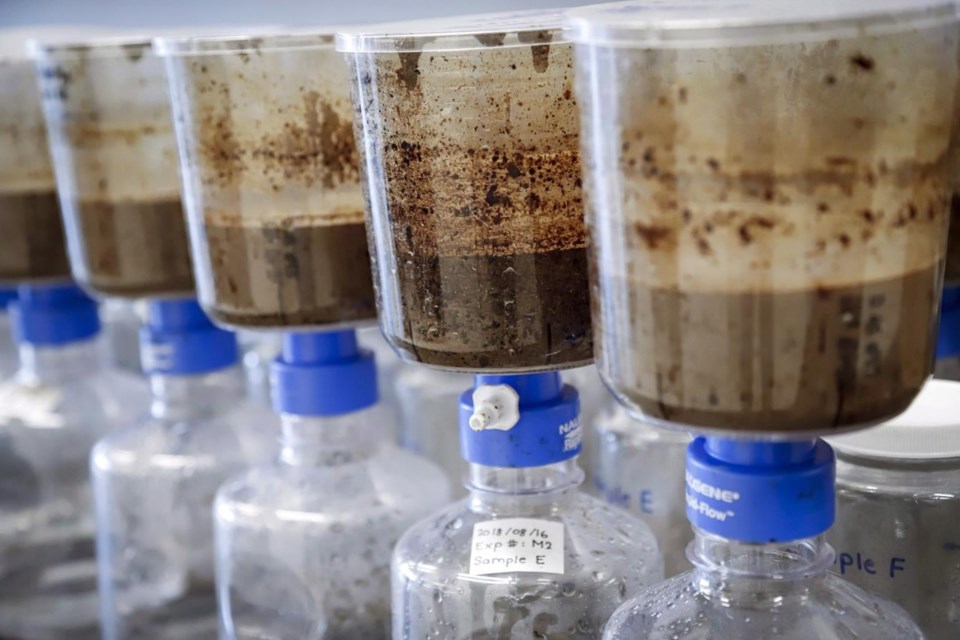EDMONTON — A third-party report into the release of millions of litres of oilsands wastewater at Imperial Oil's Kearl mine has found Alberta's energy regulator followed its rules in keeping the public and area First Nations informed — but concludes those rules are significantly lacking.
"There were no areas of non-adherence to stated policies and procedures," says the Deloitte report, prepared for the regulator's board.
But the report finds those procedures deeply lacking and recommends the regulator firm up and add details to many of its notification protocols.Â
Essential terms such as "emergency" are left undefined, it says. Guidelines for handling water samples are not provided. Details were vague on how First Nations and other area communities were notified.
"There are no documented procedures for internal communication and escalation to management or the board," it said.Â
"We have received feedback from both Indigenous Peoples and the (municipality of Wood Buffalo) about the incident response and inspection processes, expressing concerns over the lack of transparency from (the regulator) regarding ongoing incident response and inspections."
Deloitte found it wasn't clear if the regulator's directive on emergency planning for the industry even applies to the oilsands.
They're all obvious flaws that have been pointed out many times and should have been fixed long ago, said Chief Billy-Joe Tuccaro of the Mikisew Cree First Nation.
"We could have written the report for them," he said. "It's all stuff that's simple and should have been fixed long ago."
Tuccaro said the report lets the regulator off too easy.
"Who dropped the ball with the release of information?" he asked. "What are the repercussions?"
Chief Allan Adam of the Athabasca Chipewyan First Nation called the report totally inadequate to deal with the releases' effect on treaty rights.
"The report says they did nothing wrong and in our view they did," he said. "They were part of the coverup from the get-go.
"The Alberta government and the (regulator) should lawyer up because we're coming." Â
The review was commissioned by the regulator's board after two large releases of wastewater from the mine.Â
One release was spotted and reported in May 2022 as discoloured water.
First Nations were notified but not given further updates until March, when the release was disclosed as tailings seepage, along with news of a second release of 5.3 million litres of contaminated wastewater.
Area First Nations were angry and said their members had been harvesting in the area for nine months without being told of possible contamination. So was the city of Fort McMurray and water users as far downstream as the Northwest Territories.Â
David Goldie, chairman of the regulator's board, said the Kearl situation was unusual.
"Most of the incidents the (regulator) deals with are emergencies," he said. "A pipeline breaks — it's immediately obvious what's going on.
"With the Imperial Oil seepage it wasn't clear what was going on. What it pointed out was the processes and standards and policies were not well designed to handle those kinds of incidents."
He said the Kearl situation fell into "grey areas."Â
"Dealing with incidents that evolve over time are what the (regulator) needs to get better at," Goldie said. Â Â
He promised the regulator would be more proactive in the future about communicating with area residents.
"The bar has to move here," he said.
"A much larger range of incidents need to be reported. It's not good enough anymore to say the operator is responsible and assume they've fulfilled their duty."
Tuccaro said the regulator says it wants to improve communications yet refused to provide them copies of the report in a briefing they were given on Monday.
"Our trust is broken," Tuccaro said. "It's hard to believe anything they're saying."
Tuccaro points out seepage at the Kearl site is ongoing. His community continues to depend on bottled water over concerns about its regular water supply.Â
Adam said not everyone has access to bottled water.
"We still drink from the reservoir. We bathe our kids in that water.Â
"We are very concerned."
The report looks only at the regulator's communications. A separate investigation is underway into Imperial's actions, conducted by the regulator.
The releases are also the subject of a federal investigation under the Fisheries Act.Â
This report by The Canadian Press was first published Sept. 27, 2023.Â
Bob Weber, The Canadian Press




